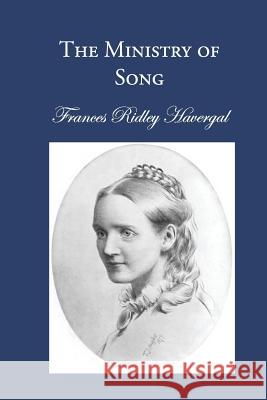The Ministry of Song » książka
The Ministry of Song
ISBN-13: 9781937236519 / Angielski / Miękka / 2017 / 146 str.
A sterling volume of poems, The Ministry of Song was Frances Ridley Havergal's first published book. First published in 1869 by the Christian Book Society, 22 King William Street, Strand, London, this was taken up and published in 1871 by James Nisbet & Co., her primary publisher while she lived and after she died. First published when she was thirty-two, Frances (December 14, 1836 to June 3, 1879) inscribed this book "To my Father." After Rev. William Henry Havergal (January 18, 1793 to April 19, 1870) died, the inscription in the first Nisbet edition was changed to be "To my Father's Memory." Like her father, Frances was a remarkably gifted musician, the finest sort, and her poetry is very musical, exceptionally and finely so, true music through words without notes, full of rhythms and cadences and musical aspects. Note that this first book published by her was a collection of poems entitled The Ministry of Song (no notes nor staves, full of music), and her 1878 volume of poetry Loyal Responses (also words only, full of music) had the sub-title "Daily Melodies for the King's Minstrels." There are many examples of her poems that exemplify music in the words. Poetry is the part of language closest to music, at the edge or border where language and music meet, and Frances' poetry reflects her deep, profound musicianship. Just as Havergal's poem "Seulement pour Toi" ("Only for Thee," written on July 23, 1876 and posthumously published in Under His Shadow in 1879) needs (requires) a person with an advanced knowledge of French to see the beauty and power of that French poem, similarly a true musician can see rich details in the warp and woof of Frances' poetry and other works which are very reflective of a true musician, which others who are not musicians might easily miss. Apart from her performance and compositions, which were so valuable for those who heard her, she was a musician to the core, and her musical gifts enrich her other works, her poetry and prose. Her works, both poetry and prose, are notably consistent in the fineness of both the ideas and the presentation of the ideas. The content of the ideas is more important than the presentation of the ideas, though both content and presentation are so very important. Both her life lived out in the world and her works written on paper sought to glorify her Master and to help others to know Him.











